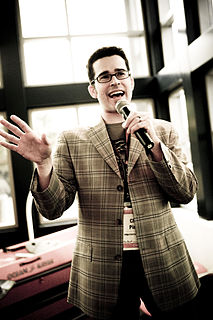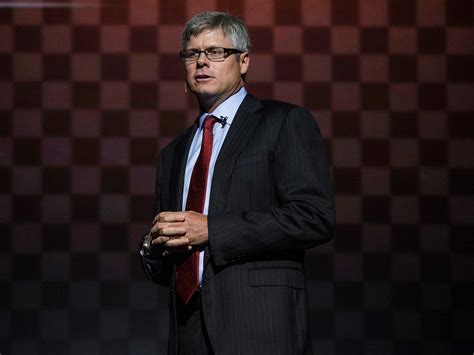A Quote by Jeff Dean
As devices continue to shrink and voice recognition and other kinds of alternative user-interfaces become more practical, it is going to change how we interact with computing devices. They may fade into the background and just be around, allowing us to talk to them just as we would some other trusted companion.
Related Quotes
At one time, I hated the iPhone - but that was only before I used one for the first time. Now, it would be difficult for me to make the switch to any other platform. I've spent a fair amount of money on apps that continue to ride with me as I upgrade my iS devices. The iPhone certainly has its share of flaws and shortcomings, but having spent a great deal of time with other devices that claim to be "killer" continue to fall short. The industry needs competition, but I just need my mobile communications computer to work with a healthy array of software.
I believe there's plenty of market for each; we're talking about an ecosystem that is going to support billions of devices, so a competitive landscape is good for consumers, developers, and the platforms alike. Apple brings a smooth elegance to its devices and platform, with the best marketplace experience to boot. Google brings a higher volume of devices as well as a more diverse ecosystem to interact with. The real story here is that Microsoft is nowhere to be seen, ending a two-decade monopoly and creating biggest opportunity for software startups probably ever.



































